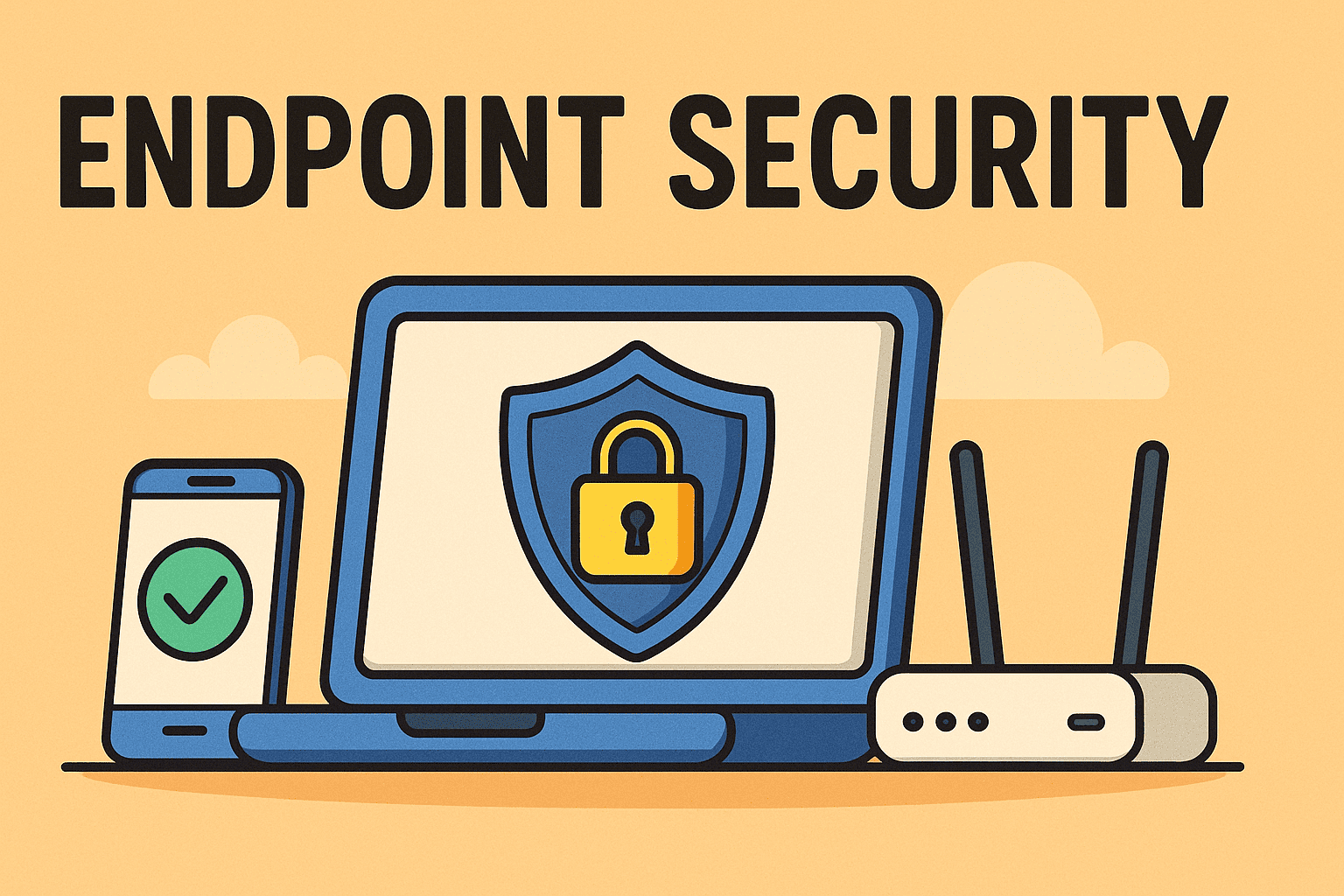Updated on October 7, 2025, by OpenEDR
Every laptop, smartphone, and IoT device connected to your network is a potential doorway for cybercriminals. Did you know that 68% of organizations have experienced endpoint attacks that compromised their data in the past year? This is why IT leaders consistently ask: what is endpoint security, and how can it protect my business?
Introduction: Why Endpoint Security Matters Today
Endpoint security refers to strategies and solutions designed to protect endpoints—like computers, mobile devices, and servers—from malware, ransomware, phishing, and advanced cyber threats. For IT managers, CEOs, and cybersecurity professionals, securing endpoints is one of the most critical defenses in a Zero Trust world.
What Is Endpoint Security?
Endpoint security is the practice of safeguarding endpoint devices from malicious activity and unauthorized access. Unlike traditional antivirus tools, endpoint security solutions combine advanced detection, prevention, and response capabilities to protect users and businesses.
Key Features of Endpoint Security:
Malware & Ransomware Protection
Threat Detection & Response (EDR/XDR)
Data Encryption
Application & Device Control
Cloud-Delivered Updates
👉 In short: Endpoint security ensures that every connected device remains a secure, monitored, and controlled part of your IT ecosystem.
Why Endpoint Security Is Essential for Businesses
For CEOs and IT managers, the stakes are high. Modern attacks target endpoints because they are often the weakest links in enterprise networks.
Benefits of Endpoint Security:
Protects Sensitive Data – Prevents breaches that lead to regulatory fines.
Defends Remote Workforces – Secures laptops and mobile devices outside office firewalls.
Improves Compliance – Meets requirements for HIPAA, PCI DSS, GDPR, and more.
Stops Advanced Threats – Blocks zero-day malware with AI and machine learning.
Business Continuity – Reduces downtime caused by cyberattacks.
Endpoint Security vs Antivirus: What’s the Difference?
Many executives confuse endpoint security with antivirus software. Here’s how they differ:
| Feature | Antivirus Software | Endpoint Security Solutions |
|---|---|---|
| Scope | Protects single devices | Protects all devices in a network |
| Detection | Signature-based | Behavioral, AI, and signature-based |
| Response | Limited | Advanced (EDR/XDR, forensic tools) |
| Central Management | No | Yes (cloud or on-premises console) |
| Business Use | Consumer focus | Enterprise-grade security |
👉 Verdict: Antivirus protects individuals; endpoint security protects entire organizations.
Key Components of Endpoint Security Solutions
When evaluating endpoint security, IT managers should look for these components:
1. Endpoint Detection and Response (EDR)
Provides real-time monitoring, analytics, and automated responses to suspicious activity.
2. Next-Gen Antivirus (NGAV)
Uses AI-driven behavior analysis to stop malware before it executes.
3. Data Encryption
Protects sensitive business data at rest and in motion.
4. Device and Application Control
Ensures only authorized hardware and apps can run on the network.
5. Threat Intelligence Integration
Leverages global data to predict and prevent evolving attacks.
Endpoint Security in Cybersecurity Frameworks
Modern security frameworks like Zero Trust Architecture and NIST Cybersecurity Framework place endpoint protection at the center of defense.
Zero Trust: Assumes no device or user is trustworthy by default.
Defense in Depth: Endpoints add another layer of protection.
Incident Response: Endpoint logs provide critical forensic evidence.
👉 Endpoint security is not optional—it’s foundational to compliance and resilience.
Challenges in Implementing Endpoint Security
Despite its benefits, organizations face hurdles in deployment:
Device Diversity – Securing desktops, laptops, mobiles, and IoT.
Remote Workforce – Employees using unsecured home networks.
Shadow IT – Unauthorized devices connecting to the network.
Alert Fatigue – Overwhelming security teams with false positives.
👉 Overcoming these challenges requires centralized management, automation, and integration with broader cybersecurity strategies.
Best Practices for Endpoint Security
To strengthen endpoint security, IT leaders should:
Adopt EDR/XDR solutions for real-time detection.
Implement MFA (Multi-Factor Authentication) on all devices.
Regularly patch and update operating systems and software.
Segment networks to isolate compromised endpoints.
Provide employee security training to reduce human error.
The Future of Endpoint Security
Endpoint security is evolving alongside modern threats. Emerging trends include:
AI-Driven Threat Hunting – Automated detection of anomalies.
Zero Trust Endpoint Management – Stronger identity-first access controls.
Integration with Cloud Security – Hybrid models for remote work.
IoT Endpoint Security – Protecting billions of connected devices.
EDR to XDR Evolution – Cross-platform protection that unifies endpoints, networks, and cloud workloads.
👉 Businesses that embrace these advancements will be better equipped for the next decade of cyber threats.
FAQs: Endpoint Security
1. What is endpoint security in simple terms?
It’s protecting devices like laptops, desktops, and servers from cyber threats.
2. How is endpoint security different from antivirus?
Antivirus protects individual machines, while endpoint security protects all devices in a network with centralized management.
3. Why is endpoint security important for remote work?
Remote devices outside corporate firewalls are vulnerable; endpoint security ensures they remain protected.
4. What industries need endpoint security the most?
Healthcare, finance, education, and government—any sector handling sensitive data.
5. Is endpoint security expensive?
Costs vary, but the expense of a breach is far higher than deploying endpoint protection.
Conclusion: Why Endpoint Security Is Non-Negotiable
So, what is endpoint security? It’s a comprehensive defense strategy to secure every device that connects to your business network. In an era where one compromised laptop can take down an enterprise, endpoint protection is no longer optional—it’s essential.
For IT managers, CEOs, and cybersecurity professionals, investing in endpoint security means protecting data, compliance, and business continuity.
👉 Start securing your business endpoints today with a robust solution: Register for OpenEDR Free
